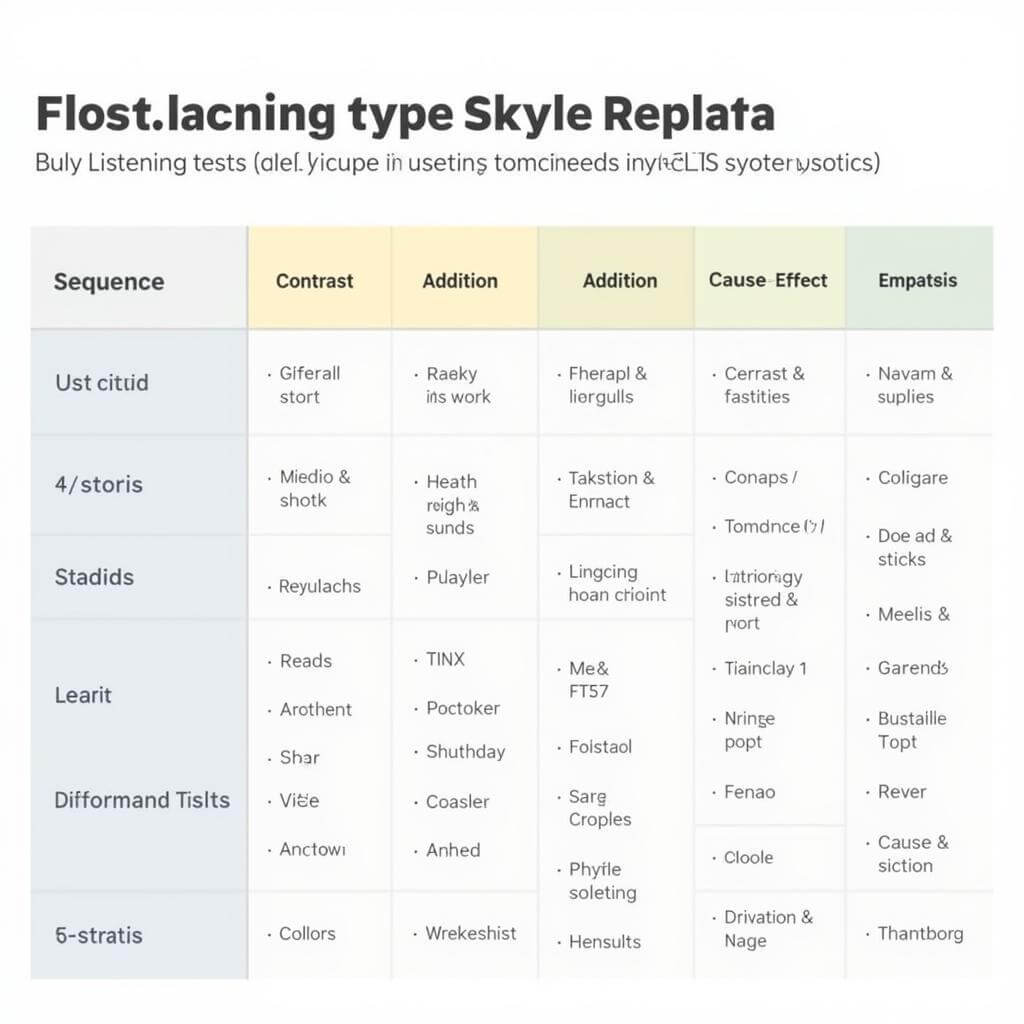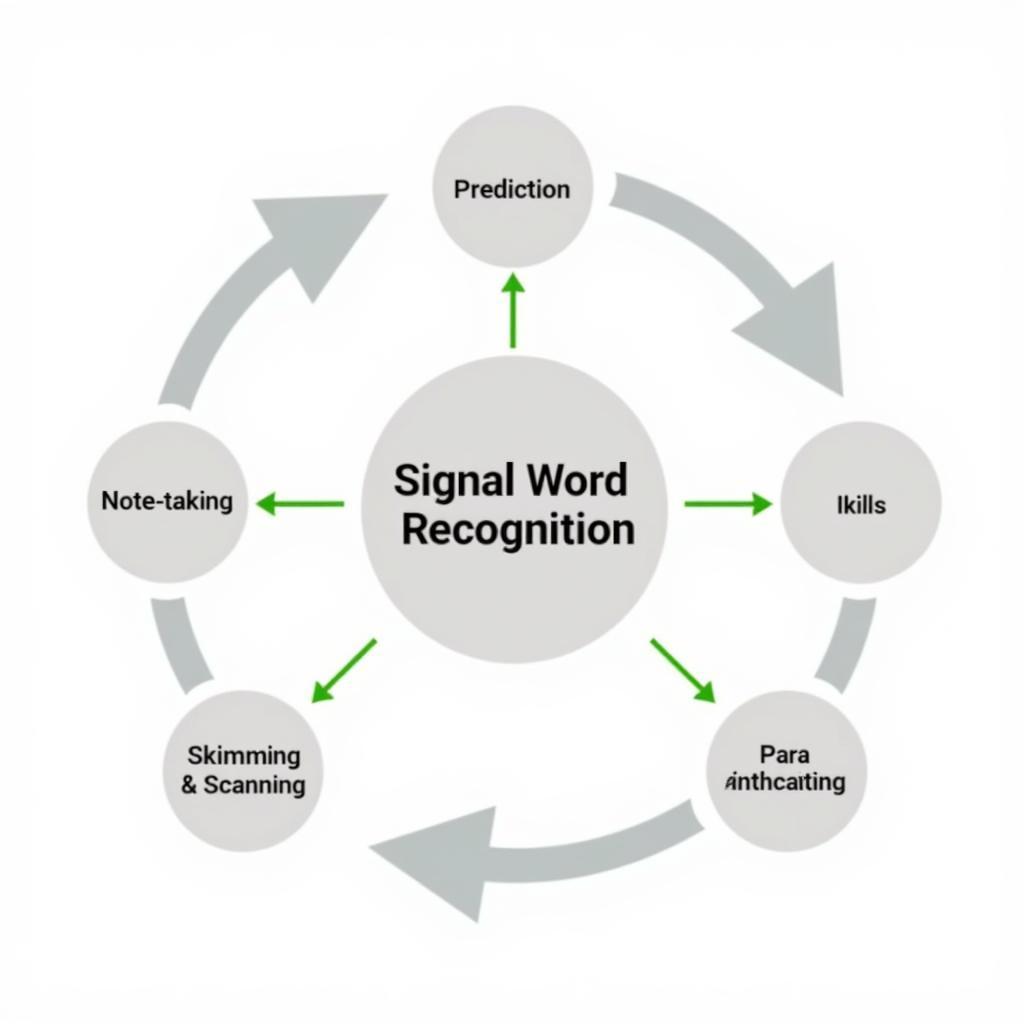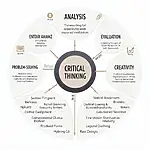Are you struggling to improve your IELTS Listening score? One of the most effective strategies is identifying signal words in listening. This crucial skill can significantly boost your performance and help you navigate the complexities of the IELTS Listening test with confidence.
Understanding Signal Words in IELTS Listening
Signal words are like signposts in a conversation or lecture. They guide listeners towards important information, indicate transitions, and highlight key points. In the context of IELTS Listening, these words can be your best allies in capturing the essence of what you hear.
Why are Signal Words Important?
Signal words serve several critical functions in IELTS Listening:
- They alert you to upcoming key information
- They help you predict what type of information will follow
- They indicate changes in topic or direction
- They emphasize important points or conclusions
Identifying important speaker cues is closely related to recognizing signal words, as both skills help you navigate the audio content more effectively.
Types of Signal Words in IELTS Listening
Understanding the different categories of signal words can significantly enhance your listening comprehension. Here are the main types you’ll encounter:
1. Sequence Words
These words indicate the order of events or ideas:
- First, second, third
- Next, then, finally
- Subsequently, eventually
2. Contrast Words
These signal a change or difference in information:
- However, on the other hand
- In contrast, alternatively
- Despite, although
3. Addition Words
These introduce additional information or examples:
- Furthermore, moreover
- In addition, additionally
- Also, as well as
4. Cause and Effect Words
These indicate relationships between ideas:
- Therefore, consequently
- As a result, thus
- Because, since
5. Emphasis Words
These highlight important points:
- Importantly, significantly
- In particular, especially
- Above all, most notably
 IELTS Listening Signal Words Chart
IELTS Listening Signal Words Chart
Strategies for Identifying Signal Words in IELTS Listening
Now that we understand the importance and types of signal words, let’s explore strategies to identify them effectively during the IELTS Listening test.
-
Pre-listening preparation: Before the audio begins, quickly scan the questions. This can help you anticipate the types of signal words you might hear.
-
Active listening: Don’t just passively absorb the audio. Actively listen for transitions and emphasis in the speaker’s tone.
-
Note-taking: Jot down signal words as you hear them. This can help you track the structure of the conversation or lecture.
-
Practice with varied accents: IELTS uses speakers with different accents. Familiarize yourself with how signal words sound in various accents.
-
Focus on speaker changes: In conversations, pay attention when speakers change. This often signals a shift in topic or perspective.
Dr. Emma Thompson, a veteran IELTS examiner, emphasizes the importance of this skill: “Identifying signal words is like having a roadmap for the listening test. It guides candidates towards the information they need, making the whole process more manageable.”
Focusing on speaker changes is another crucial aspect of IELTS Listening that complements the skill of identifying signal words.
Common Pitfalls in Identifying Signal Words
Even with practice, test-takers can fall into certain traps when identifying signal words. Here are some common pitfalls to avoid:
-
Overreliance on signal words: While important, don’t focus solely on signal words at the expense of overall comprehension.
-
Misinterpreting casual transitions: In informal conversations, speakers might use less obvious transitions. Be alert to subtle shifts in topic.
-
Ignoring context: A word that signals contrast in one context might not serve the same purpose in another. Always consider the broader context.
-
Neglecting non-verbal cues: Intonation and pauses can also signal important information. Focusing on speaker’s emotional tone can provide additional context.
-
Failing to adapt: Different types of IELTS Listening tasks may use signal words differently. Be flexible in your approach.
Advanced Techniques for Signal Word Mastery
To truly excel in identifying signal words, consider these advanced techniques:
-
Create a signal word journal: Keep a running list of signal words you encounter in your practice sessions. Review and expand this list regularly.
-
Practice with real-world content: Use podcasts, news broadcasts, and academic lectures to train your ear for signal words in various contexts.
-
Conduct mock interviews: Practice with a partner, focusing on using and identifying signal words in your responses.
-
Analyze transcripts: After listening to practice tests, review the transcripts to see if you missed any signal words. Understand why they were used in that context.
-
Develop predictive skills: As you become more familiar with signal words, try to predict what information might follow based on the signal words you hear.
Professor James Lee, an IELTS preparation expert, notes: “The ability to not just identify, but also anticipate signal words can give test-takers a significant advantage. It’s a skill that develops with dedicated practice.”
Listening for speaker intentions is another advanced skill that can complement your ability to identify and interpret signal words effectively.
Integrating Signal Word Recognition with Other Listening Skills
Identifying signal words is most effective when combined with other critical IELTS Listening skills:
- Prediction: Use signal words to predict the type of information that will follow.
- Note-taking: Incorporate signal words into your notes to structure the information you’re hearing.
- Skimming and scanning: Quickly identify which questions might be answered based on the signal words you hear.
- Paraphrasing: Practice rephrasing sentences using different signal words to enhance your understanding of their function.
 IELTS Listening Skills Integration
IELTS Listening Skills Integration
Remember, identifying irrelevant information quickly is just as important as recognizing relevant cues. Signal words can help you distinguish between essential and non-essential information.
Conclusion
Mastering the art of identifying signal words in listening is a game-changer for IELTS success. By understanding the types of signal words, implementing effective strategies, avoiding common pitfalls, and integrating this skill with other listening techniques, you can significantly enhance your performance in the IELTS Listening test.
Remember, like any skill, identifying signal words improves with practice. Dedicate time to honing this ability, and you’ll find yourself navigating the IELTS Listening test with greater ease and confidence. Keep practicing, stay focused, and let signal words be your guide to IELTS Listening success!
Frequently Asked Questions
How many types of signal words are there in IELTS Listening?
There are five main types of signal words in IELTS Listening: sequence words, contrast words, addition words, cause and effect words, and emphasis words. Each type serves a specific purpose in guiding the listener through the audio content.
Can signal words appear in all sections of the IELTS Listening test?
Yes, signal words can appear in all four sections of the IELTS Listening test. They are particularly common in academic lectures (Section 4) and discussions (Section 3), but can also be found in everyday conversations (Sections 1 and 2).
How can I practice identifying signal words outside of IELTS preparation materials?
You can practice identifying signal words by actively listening to English language podcasts, news broadcasts, academic lectures, and even casual conversations. Pay attention to transitional phrases and words that indicate important information or changes in topic.
Are signal words always obvious or can they be subtle?
Signal words can range from very obvious (like “firstly,” “in conclusion”) to more subtle (such as changes in tone or brief pauses). With practice, you’ll become more adept at recognizing both obvious and subtle signal words.
How do signal words relate to the overall structure of the listening passage?
Signal words often reflect the overall structure of the listening passage. They can indicate the introduction of new ideas, transitions between topics, emphasis on key points, and conclusions. Understanding these words helps you follow the logical flow of the information presented.
Can focusing too much on signal words distract from overall comprehension?
While signal words are important, overfocusing on them can potentially distract from overall comprehension. It’s crucial to balance attention to signal words with understanding the broader context and content of the listening passage.
How do signal words differ in academic and non-academic contexts in IELTS Listening?
In academic contexts (like lectures), signal words tend to be more formal and structured (e.g., “subsequently,” “in contrast”). In non-academic contexts (like conversations), signal words might be more casual (e.g., “anyway,” “mind you”). It’s important to be familiar with both types for IELTS Listening success.


